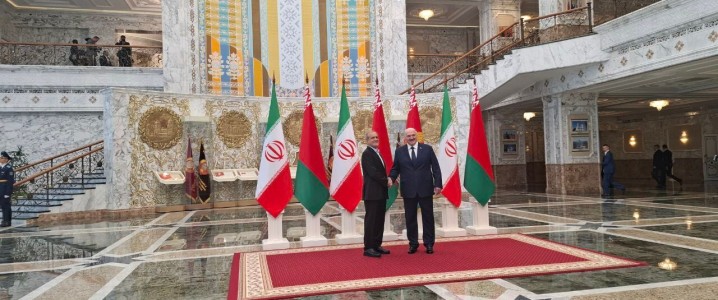
During an official visit to Minsk on March 15, 2024, Iranian President Masoud Pezeshkian and Belarusian President Alexander Lukashenko signed a total of 12 agreements aimed at enhancing cooperation between their nations. This significant diplomatic engagement seeks to deepen ties amid ongoing sanctions imposed by the United States on both countries.
The signed agreements encompass a wide array of sectors, including politics, health, pharmaceuticals, industry, environment, and tourism. They also address media relations, free trade zones, and special economic zones. Officials expressed that these pacts mark a foundational step towards long-term bilateral cooperation.
Pezeshkian Highlights Strengthened Relations
During a joint press conference, Pezeshkian characterized the visit as a pivotal moment in Iran–Belarus relations. He stated, “Relations with Belarus are being pursued at the highest possible level,” emphasizing that Iran intends to strengthen its ties without restrictions. He reiterated the commitment to fully implement the 2023–2026 cooperation roadmap.
The Iranian leader outlined practical initiatives, including joint investments, enhanced customs cooperation, and greater transit of goods and passengers. He underscored the importance of cultural and media exchanges to present an accurate depiction of both nations.
In his remarks, Pezeshkian criticized the US and its European allies, accusing them of attempting to impose unilateralism. He stated, “Such an approach has not been and will not be tolerable by you and us.” He also asserted that Iran and Belarus can navigate sanctions and challenges effectively through collaboration.
Lukashenko Affirms Partnership
In response, Lukashenko praised Iran as a reliable partner, expressing a willingness to discuss various areas of mutual interest. He requested Pezeshkian to convey his regards to Iran’s Supreme Leader Ali Khamenei, further solidifying the diplomatic bond between the two countries.
Both leaders highlighted the importance of multilateral organizations, such as the Eurasian Economic Union (EAEU), the Shanghai Cooperation Organization (SCO), and BRICS, as platforms for expanding cooperation beyond Western-centric frameworks. This strategic focus aims to enhance both nations’ global standing while navigating the complexities of international relations.
Overall, the agreements signed in Minsk represent a significant step towards a more integrated and cooperative relationship between Belarus and Iran, reflecting their shared interests in countering external pressures and fostering economic collaboration. The commitment to a comprehensive partnership could reshape the landscape of bilateral relations, setting a precedent for future cooperation amidst geopolitical challenges.






